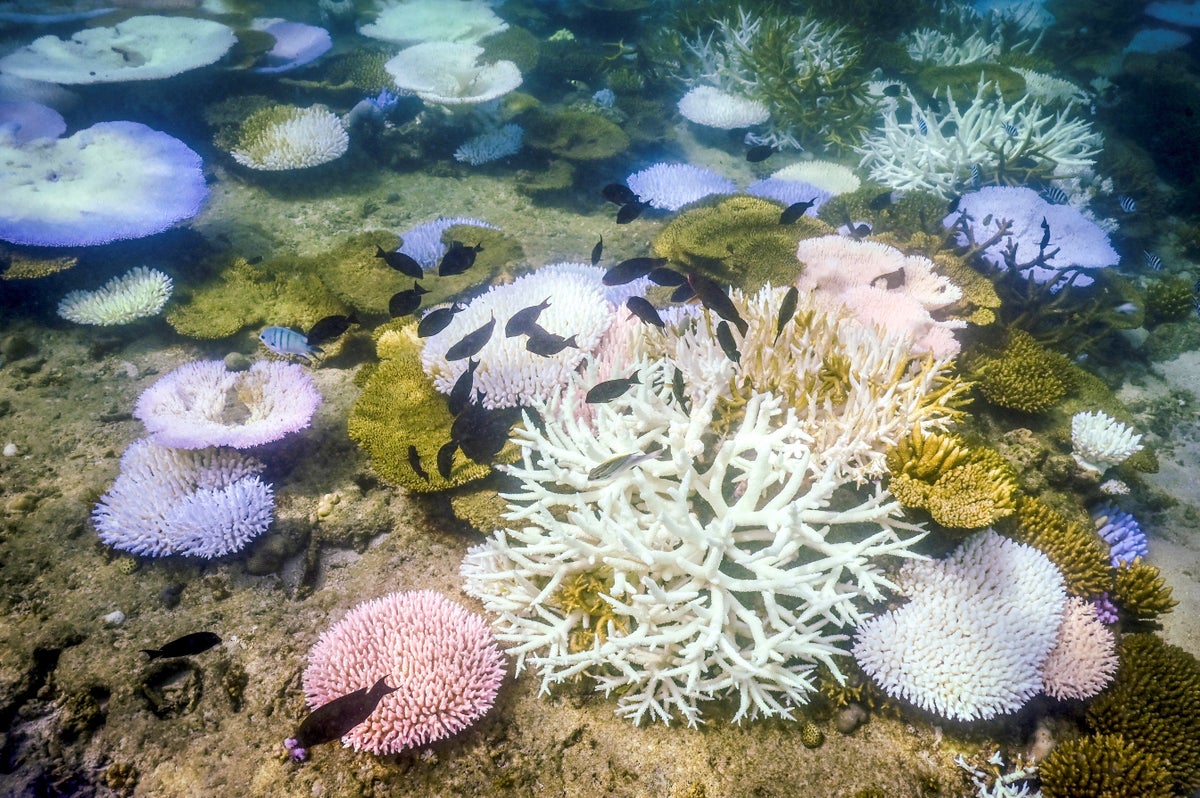Coral Die-Off Marks Earth’s First Climate ‘Tipping Point’, Scientists Say
A surge in global temperatures has caused widespread coral reef bleaching and death around the world
Vast expanses of coral in Australia’s Great Barrier Reef have died as a result of extremely high water temperatures.
Join Our Community of Science Lovers!
Surging temperatures worldwide have pushed coral reef ecosystems into a state of widespread decline, marking the first time the planet has reached a climate ‘tipping point’, researchers announced today.
They also say that without rapid action to curb greenhouse-gas emissions, other systems on Earth will also soon reach planetary tipping points, thresholds for profound changes that cannot be rolled back.
“We can no longer talk about tipping points as a future risk,” says Steve Smith, a social scientist at the University of Exeter, UK, and a lead author on a report released today about how close Earth is to reaching roughly 20 planetary tipping points. “This is our new reality.”
If you’re enjoying this article, consider supporting our award-winning journalism by subscribing. By purchasing a subscription you are helping to ensure the future of impactful stories about the discoveries and ideas shaping our world today.
Led by Smith and other scientists at the University of Exeter, the report assesses the risk of breaching tipping points such as ice-sheet collapse, rising seas and dieback of the Amazon rainforest. It also discusses progress towards various positive tipping points focused on social and economic change, such as the adoption of clean energy.
The group’s first such assessment, released less than two years ago, raised alarms but did not officially declare that any climate tipping points had been reached. In the past few years, however, global temperatures have surged, sparking concerns among some scientists that global warming is accelerating and could lead to even more widespread impacts in the coming decades than the changes that have already been recorded.
Australia’s Great Barrier Reef is ‘transforming’ because of repeated coral bleaching
The impact on coral reefs has been particularly severe in the past two years , pushing these ecosystems to their tipping point, the researchers say. The warming waters have caused corals across the globe to bleach, a process that occurs when the organisms expel the symbiotic algae that provide them with nutrients, oxygen and vibrant colours. The fourth global bleaching event in the past few decades began in January 2023, and researchers estimate that it has affected more than 84% of the planet’s coral ecosystems.
“We are there,” Studivan says, suggesting that coral reefs are facing massive disturbances that are both more severe and more frequent. “The period of recovery typically happens in between disturbance events is not really happening any more, and that’s kind of the big problem for corals.”
Corals would continue to decline even if humans stabilize global temperatures at around 1.5 °C above pre-industrial levels. That’s a goal of the 2015 Paris climate agreement, but the 1.5 °C threshold could be breached within the next several years, researchers say. To maintain coral reefs at “meaningful scale”, humanity must not only halt the temperature increase but also cool the planet down to around 1 °C above pre-industrial levels by extracting carbon dioxide from the atmosphere, according to the report.
“We have the knowledge,” Milkoreit says. “What we need is a kind of governance that matches the nature of this challenge.”
This article is reproduced with permission and was first published on October 12, 2025.
Jeff Tollefson works for Nature magazine.
First published in 1869, Nature is the world’s leading multidisciplinary science journal. Nature publishes the finest peer-reviewed research that drives ground-breaking discovery, and is read by thought-leaders and decision-makers around the world.
If you enjoyed this article, I’d like to ask for your support. Scientific American has served as an advocate for science and industry for 180 years, and right now may be the most critical moment in that two-century history.
I’ve been a Scientific American subscriber since I was 12 years old, and it helped shape the way I look at the world. SciAm always educates and delights me, and inspires a sense of awe for our vast, beautiful universe. I hope it does that for you, too.
If you , you help ensure that our coverage is centered on meaningful research and discovery; that we have the resources to report on the decisions that threaten labs across the U.S.; and that we support both budding and working scientists at a time when the value of science itself too often goes unrecognized.
In return, you get essential news, captivating podcasts, brilliant infographics, , must-watch videos, challenging games, and the science world’s best writing and reporting. You can even gift someone a subscription.
There has never been a more important time for us to stand up and show why science matters. I hope you’ll support us in that mission.
Thank you,
David M. Ewalt, Editor in Chief, Scientific American
Source: www.scientificamerican.com
